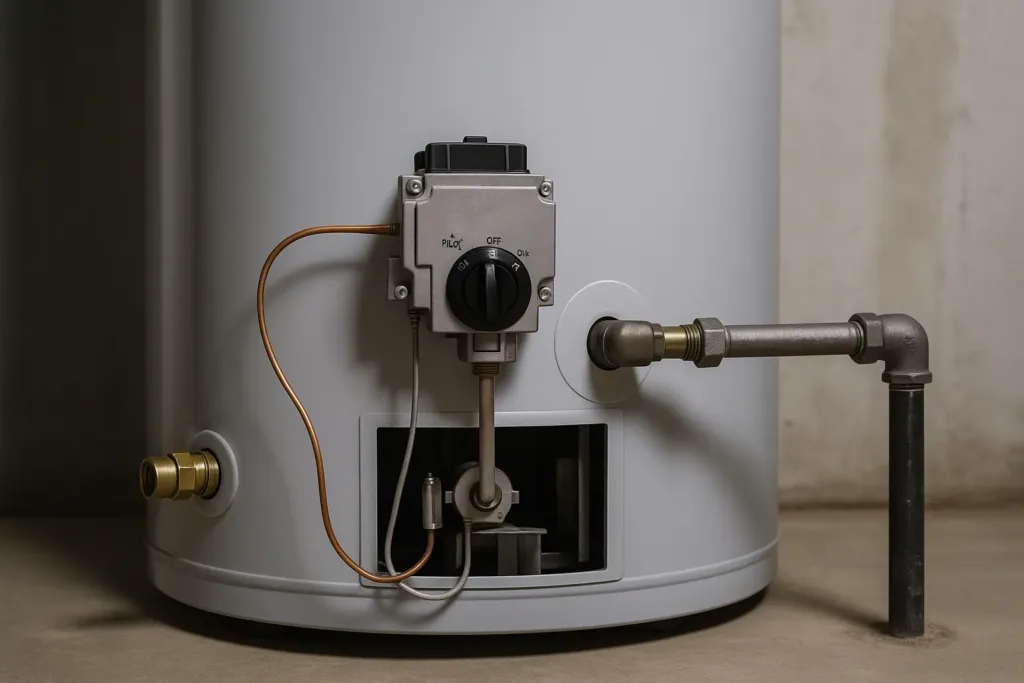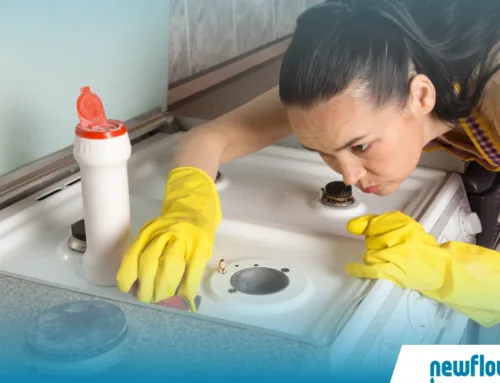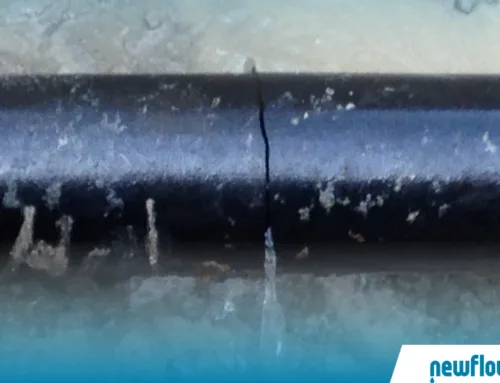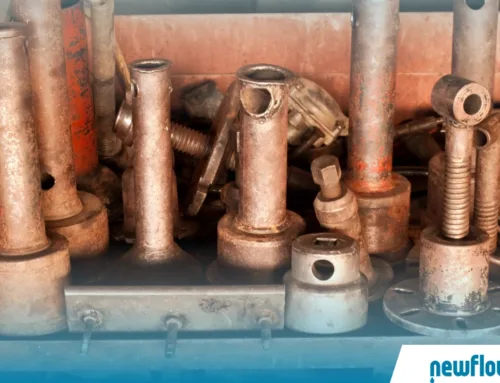Gas water heaters are still common in many Roseville homes, even with the rise in popularity of tankless models. They’re reliable, efficient, and familiar, but like any appliance, they can run into problems over time. Whether you’re dealing with no hot water, a pilot light that won’t stay lit, strange noises, or inconsistent temperatures, this guide breaks down the most common gas water heater issues in simple language. You’ll learn what signs to look for, what might be causing the problem, and when it’s time to call a professional. We’ll focus on the problems real homeowners in Roseville face every day and provide helpful insights to keep your home running smoothly.
Why Gas Water Heaters Are Still Popular in Roseville
Many homeowners in Roseville still rely on gas-powered water heaters. While tankless systems are gaining popularity, tank-style gas heaters remain in use because they’re dependable, relatively affordable, and simple to maintain. Plus, they provide a steady supply of hot water—ideal for families who use a lot of it at once.
You may learn: how much does a plumber cost
In neighborhoods like West Roseville, Highland Reserve, and Diamond Oaks, where older homes are more common, gas water heaters are often already installed. Replacing them with the same type is usually faster and cheaper than upgrading to a new system. That’s why it’s important to understand the common problems with these units and how to handle them before they turn into bigger plumbing issues.
Common Tank Sizes and What They Mean for Your Home
Gas water heaters typically come in several standard sizes: 40-gallon, 50-gallon, 75-gallon, and 100-gallon tanks. Here’s what that means for you:
-
40-gallon: Suitable for 2–3 people
-
50-gallon: Ideal for families of 3–4
-
75-gallon: Good for homes with 4–5 people and higher usage
-
100-gallon: Best for large households or homes with luxury features like spa tubs
If your tank is too small for your needs, it will run out of hot water more quickly, which might seem like a “problem” when in fact it’s just undercapacity. Sizing matters when diagnosing issues.
Most Common Gas Water Heater Problems
Homeowners in Roseville often report similar water heater issues, especially during colder months when usage increases. These are the top problems:
-
No hot water
-
Pilot light won’t stay lit
-
Water takes too long to heat
-
Unusual noises from the tank
-
Water leaks at the base
-
Rust-colored or smelly hot water
-
Fluctuating water temperature
-
Gas smell or low gas supply
Many of these issues are tied to the thermocouple, gas supply line, control valve, or sediment buildup inside the tank. We’ll explore each in more detail below.
Pilot Light Issues: Why It Won’t Stay On
One of the most common gas water heater problems is the pilot light going out and refusing to stay lit. If your pilot light won’t stay on, it usually means one of these things:
-
The thermocouple is dirty or faulty
-
There’s a draft blowing it out
-
The gas supply is weak or inconsistent
-
The control valve is malfunctioning
-
There’s a leak in the tank
Roseville homeowners often describe it as “I light it, but it goes out right away” or “It won’t click on at all.” In some cases, simply relighting the pilot according to the manufacturer’s instructions can solve the problem, but if it goes out again, you need to investigate further.
How to Check for Water Leaks
A leaking water heater tank can lead to serious damage if not caught early. If you suspect a problem:
-
Look at the base of the heater for standing water or damp spots.
-
Check the temperature and pressure relief valve for drips.
-
Inspect the inlet and outlet connections at the top of the tank.
-
Run your fingers along seams and joints to check for moisture.
Even a small leak can affect performance. If the leak is coming from the tank itself (especially at the bottom), it usually means the inner lining has failed, and that means it’s time for a replacement, not a repair.
Troubleshooting the Gas Supply
Before assuming your water heater is broken, make sure gas is reaching it.
-
Is the gas valve open?
-
Do other gas appliances in your home work?
-
Can you hear a faint hissing sound when trying to light the pilot?
If you’re unsure, it’s best to have a qualified plumber check the gas line. Working with gas without proper tools and training is dangerous. In Roseville, plumbers licensed under the California Plumbing Code know how to test gas flow safely. You may try our services: sewer line repair in Roseville
What Is a Thermocouple and How Does It Fail?
The thermocouple is a small metal sensor that detects whether the pilot light is on. If it senses that the flame has gone out, it shuts off the gas to prevent leaks. But over time, it can wear out, get dirty, or become misaligned.
Symptoms of a bad thermocouple:
-
Pilot light won’t stay lit
-
The burner doesn’t turn on
-
Occasional hot water, then nothing
Thermocouples are inexpensive and can be replaced without replacing the entire water heater. But getting the installation right is key to safety and proper performance.
Fixing or Replacing a Faulty Thermocouple
Replacing a thermocouple may sound simple, but it involves carefully removing the burner assembly and gas lines. If done wrong, it can create dangerous gas leaks.
Here’s what a plumber usually does:
-
Shut off the water and gas supply
-
Remove the burner assembly
-
Disconnect the old thermocouple
-
Install a new thermocouple
-
Reconnect the gas line and burner
-
Test for gas leaks and proper pilot operation
In Roseville, some plumbing supply stores carry thermocouples that match major water heater brands like Rheem, Bradford White, and A.O. Smith. However, it’s safer to let a professional handle the replacement.
Control Valve Problems: A Deeper Dive
If replacing the thermocouple doesn’t fix the issue, the problem might be the control valve (also called the gas control thermostat). This is the brain of the water heater; it manages the pilot, burner, and temperature settings.
Control valves can fail due to:
-
Internal sensor failure
-
Debris buildup
-
Electrical or mechanical wear
These parts aren’t usually available at big-box hardware stores. They often need to be ordered by model and serial number directly from the manufacturer or specialty plumbing supply shops.
Why You Might Need a New Control Valve
Control valve replacement is more complex than swapping out a thermocouple. It involves gas-tight connections and system calibration.
A failing control valve can cause:
-
No hot water at all
-
Overheating water
-
The burner is not turning on
-
Pilot refusing to stay lit
Replacing the valve correctly can extend the life of your water heater. In many cases, this repair is much cheaper than replacing the entire unit if caught early.
When to Replace Instead of Repair
Not all gas water heater problems are worth fixing. Here’s when you might be better off replacing your water heater:
-
It’s more than 10–12 years old
-
The tank itself is leaking
-
Multiple parts are failing (thermocouple + control valve + sediment)
-
Hot water runs out too fast, even after repairs
Roseville homes with older plumbing often benefit from newer, more efficient models. Replacing the water heater may even lower your gas bill over time.
Signs You Need a Professional Plumber
You can troubleshoot minor problems, but don’t ignore warning signs that call for expert help:
-
You smell gas near the water heater
-
You see standing water or rust at the base
-
You’ve tried relighting the pilot multiple times with no success
-
The water isn’t heating at all
-
The flame looks weak, yellow, or flickering
Trying DIY repairs on gas appliances can be dangerous. A certified Roseville plumber can quickly diagnose the issue and ensure your home stays safe.
Preventing Gas Water Heater Problems
Here are a few tips to help you prevent common problems:
-
Flush the tank once a year to remove sediment
-
Inspect the anode rod every 2–3 years
-
Test the pressure relief valve
-
Check the pilot light and flame color monthly
-
Keep the area around the heater clean and dry
Routine maintenance can double the life of your water heater and help you catch small problems before they turn into costly emergencies.
Final Thoughts: Get It Fixed Right the First Time
Gas water heaters are dependable—but they do wear out over time. The most common issues, like pilot light failure, bad thermocouples, or broken control valves, can usually be repaired if caught early.
If you live in Roseville and your hot water isn’t working the way it should, take action sooner rather than later. Getting a skilled plumber involved for proper diagnosis and repair will save you time, money, and stress in the long run.
Remember: Fix it right, and flow it fast.
FAQs








![How Much Does a Plumber Cost in Sacramento? [Pricing Guide]](https://plumbersacramento247.com/wp-content/uploads/2025/08/How-Much-Does-a-Plumber-Cost-in-Sacramento-1-500x383.jpg)



